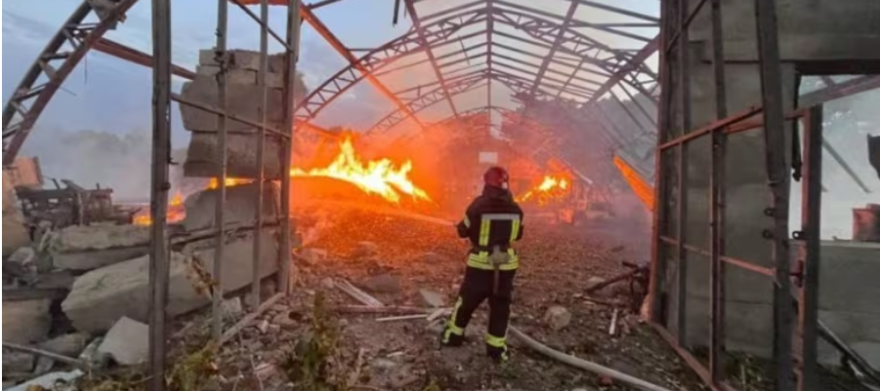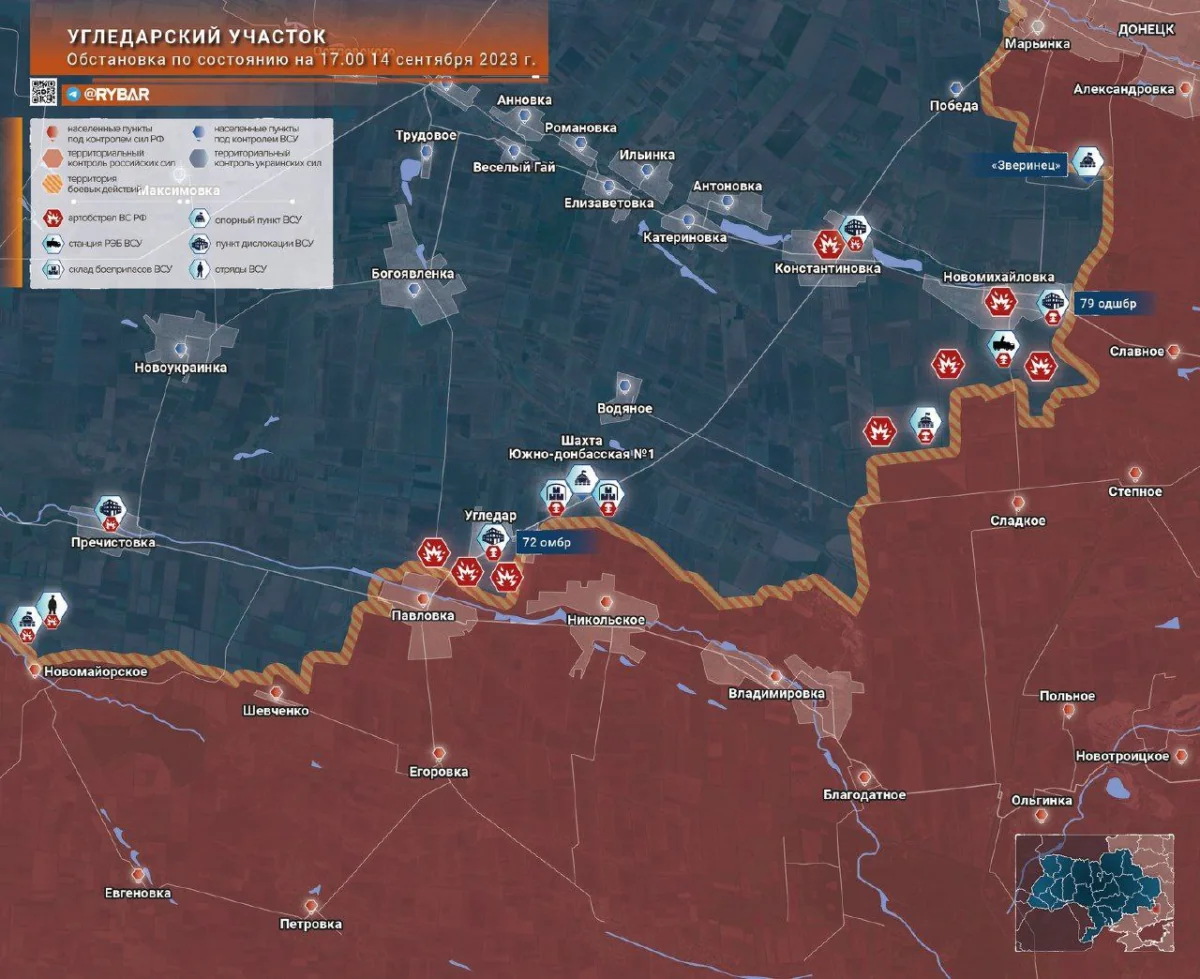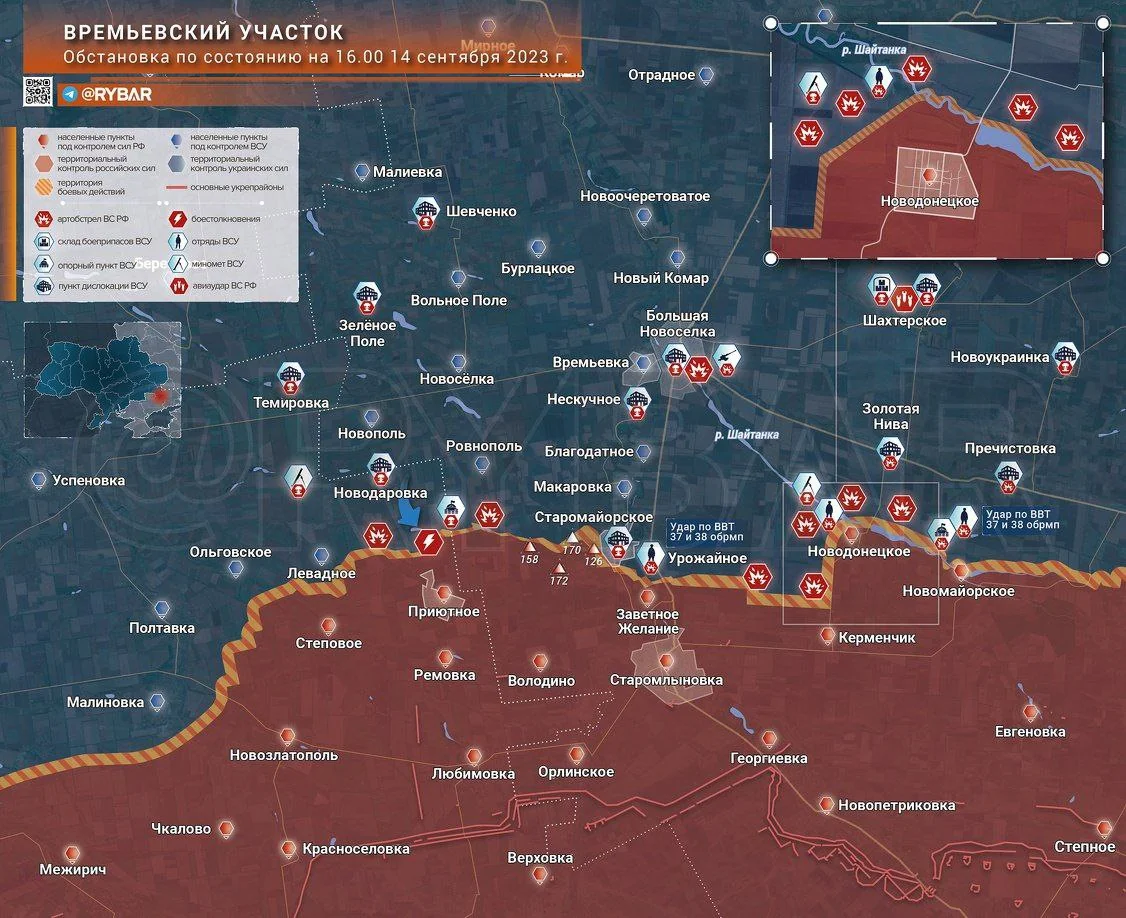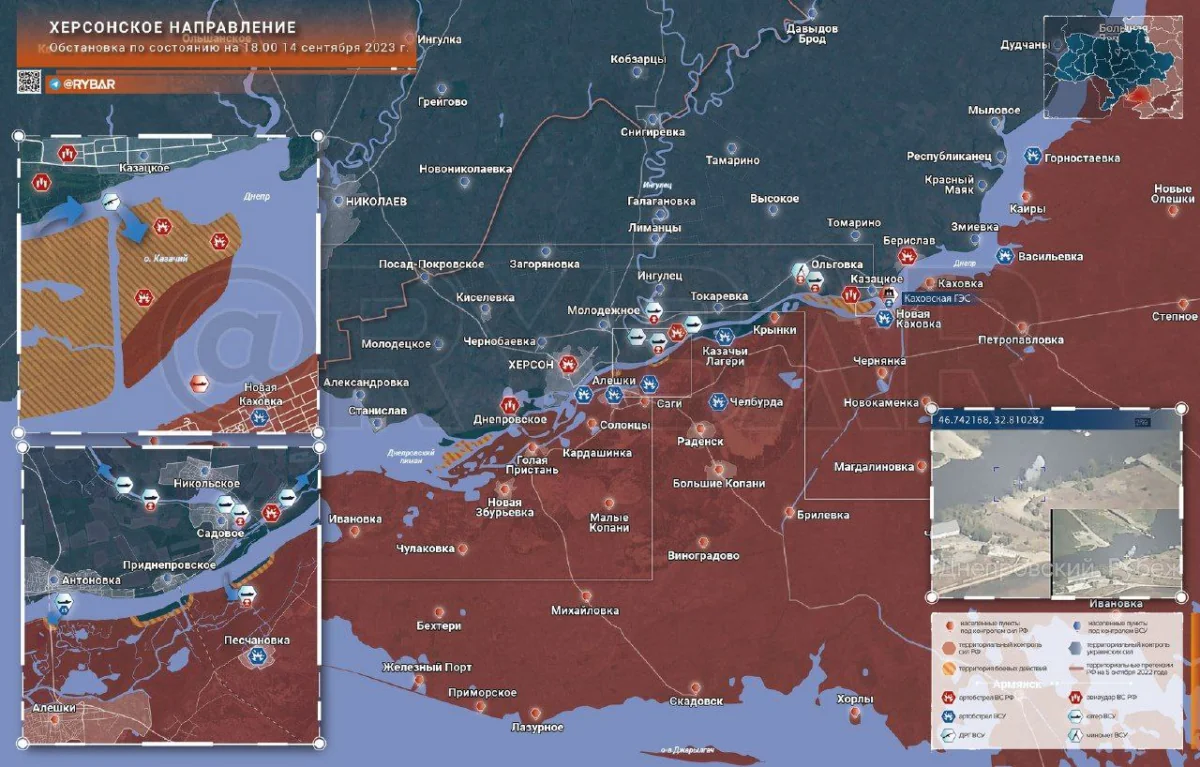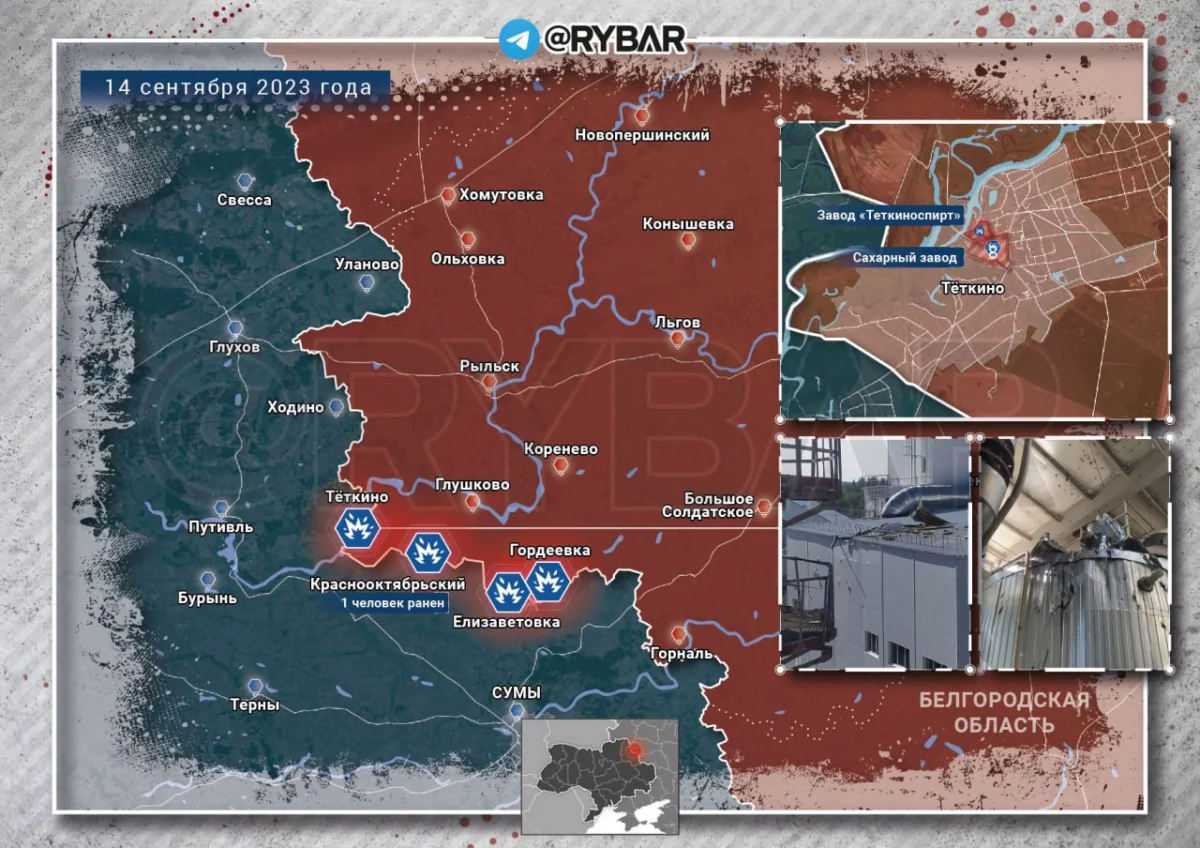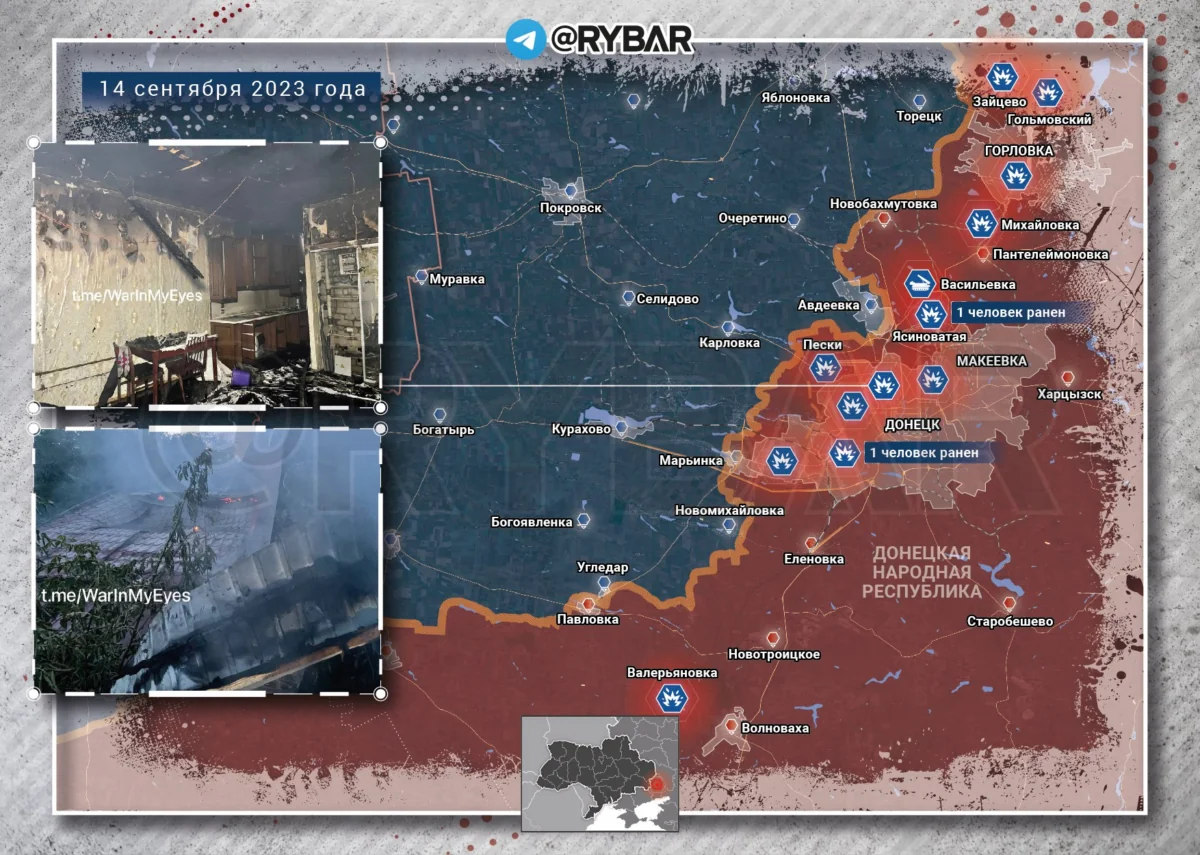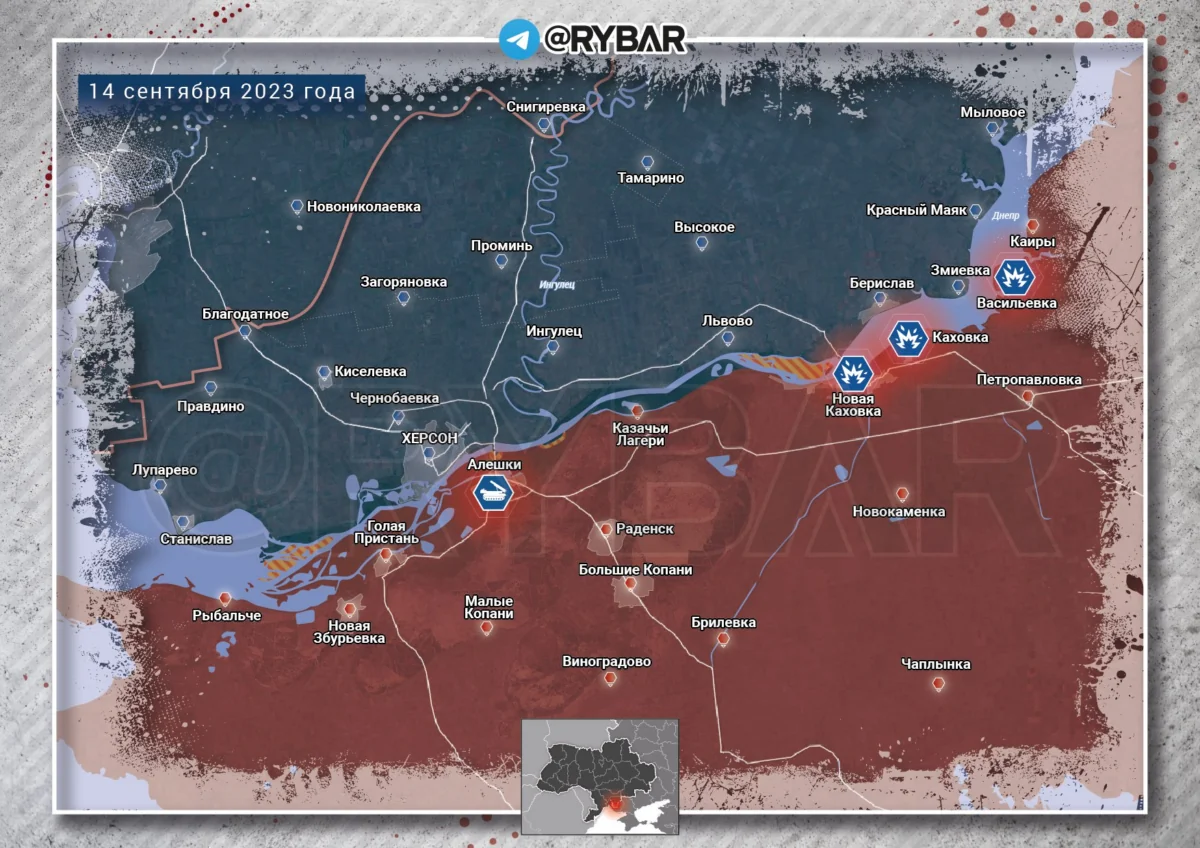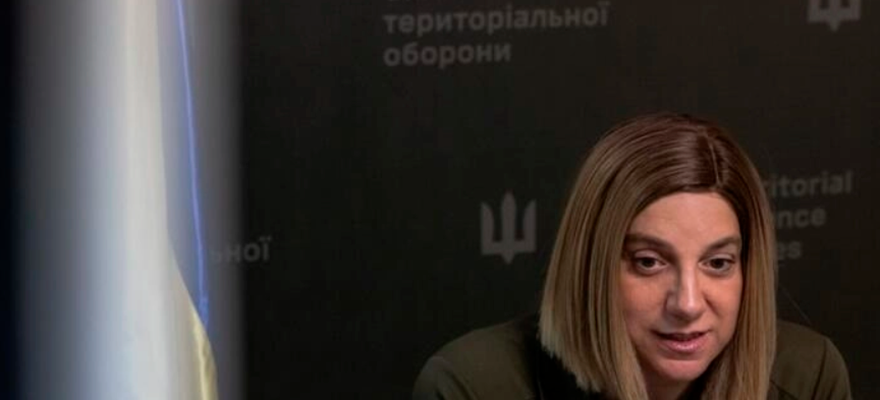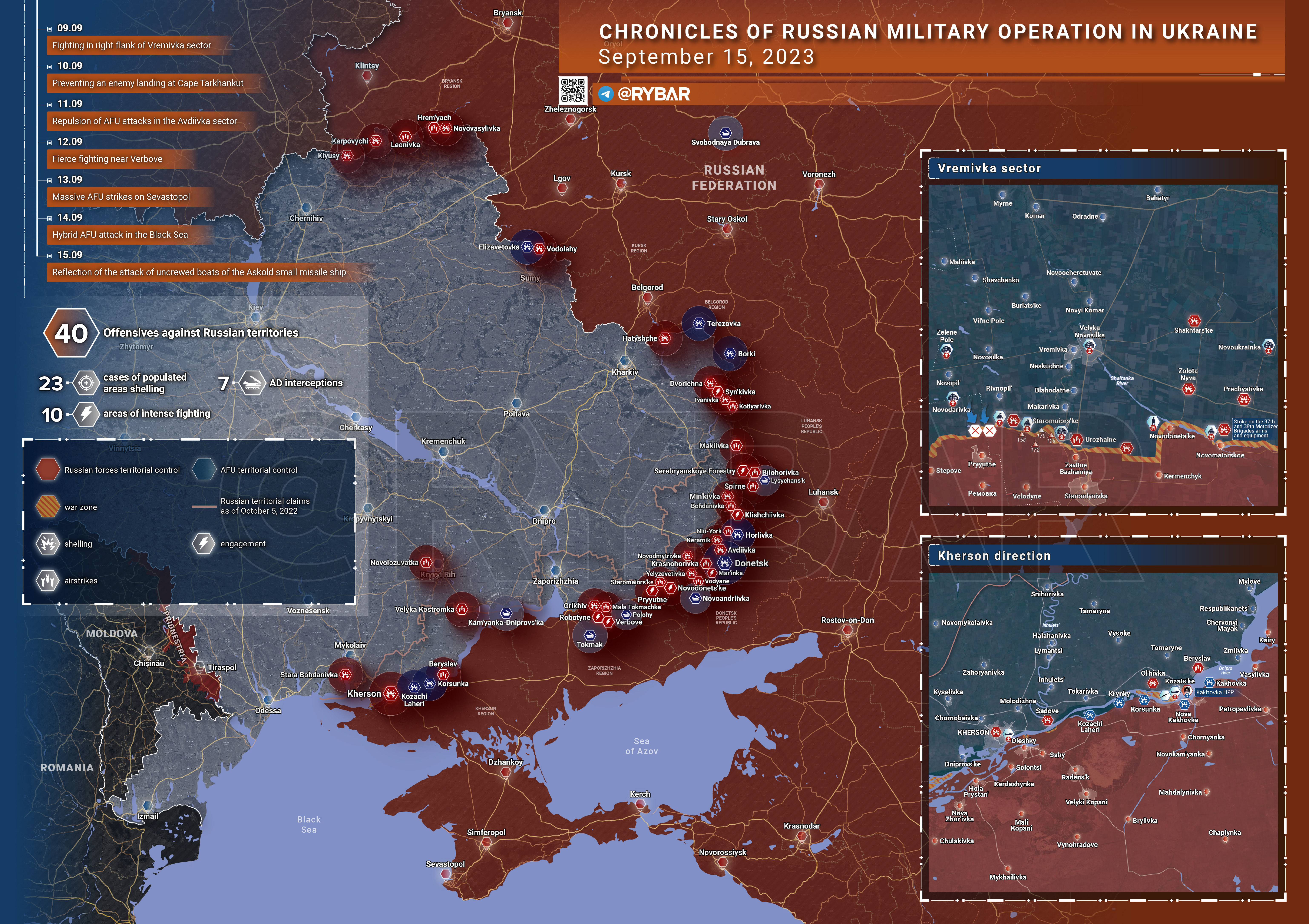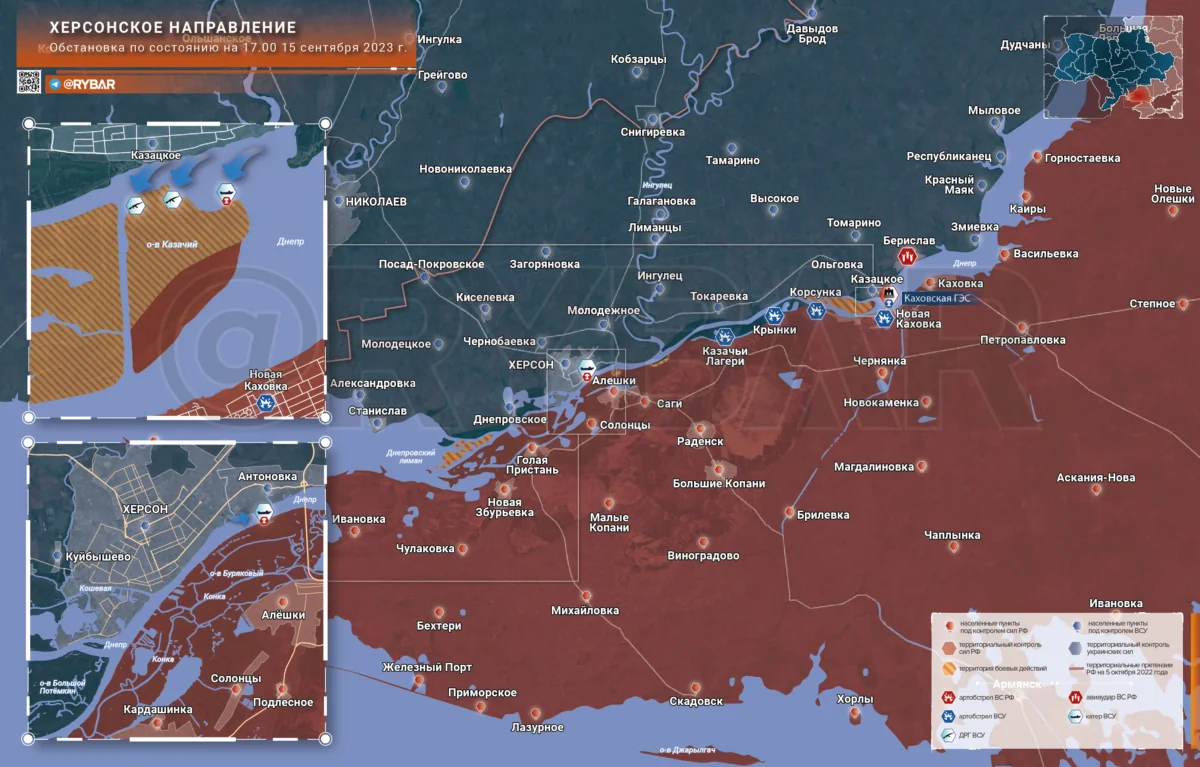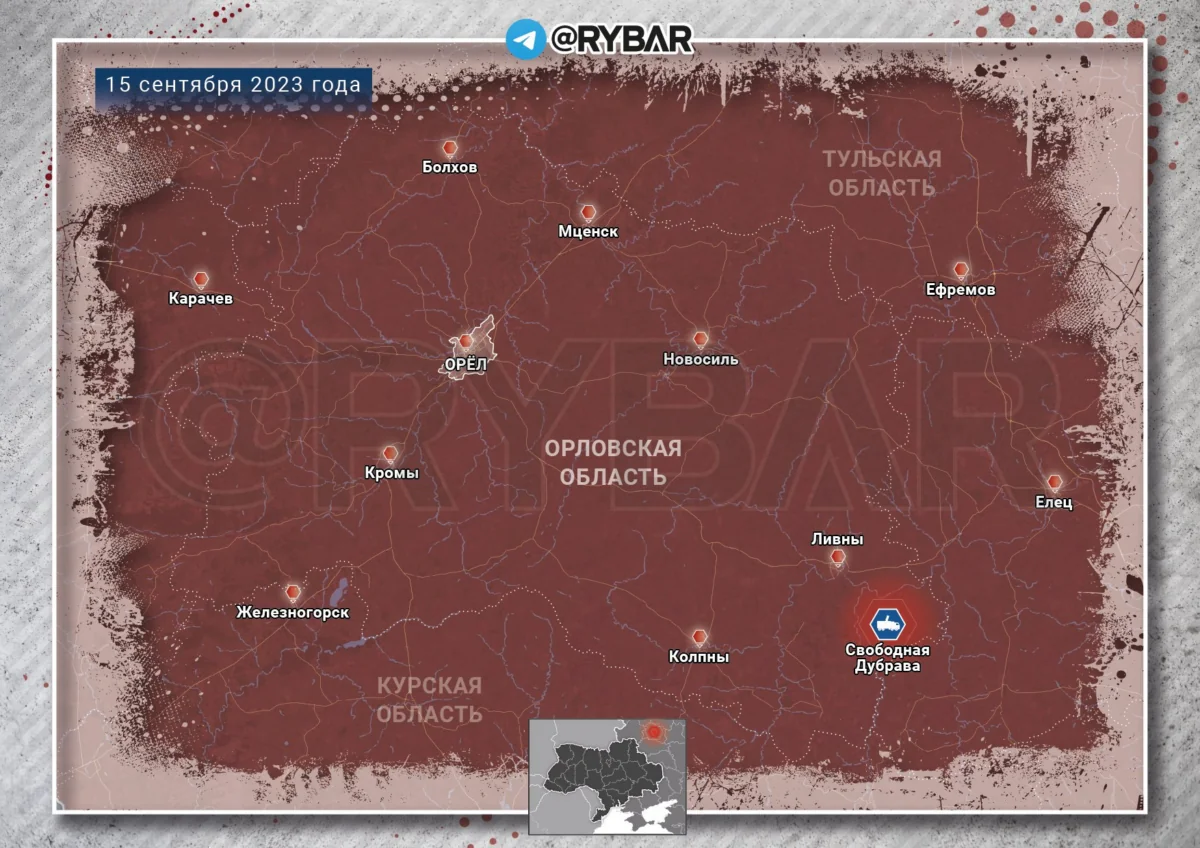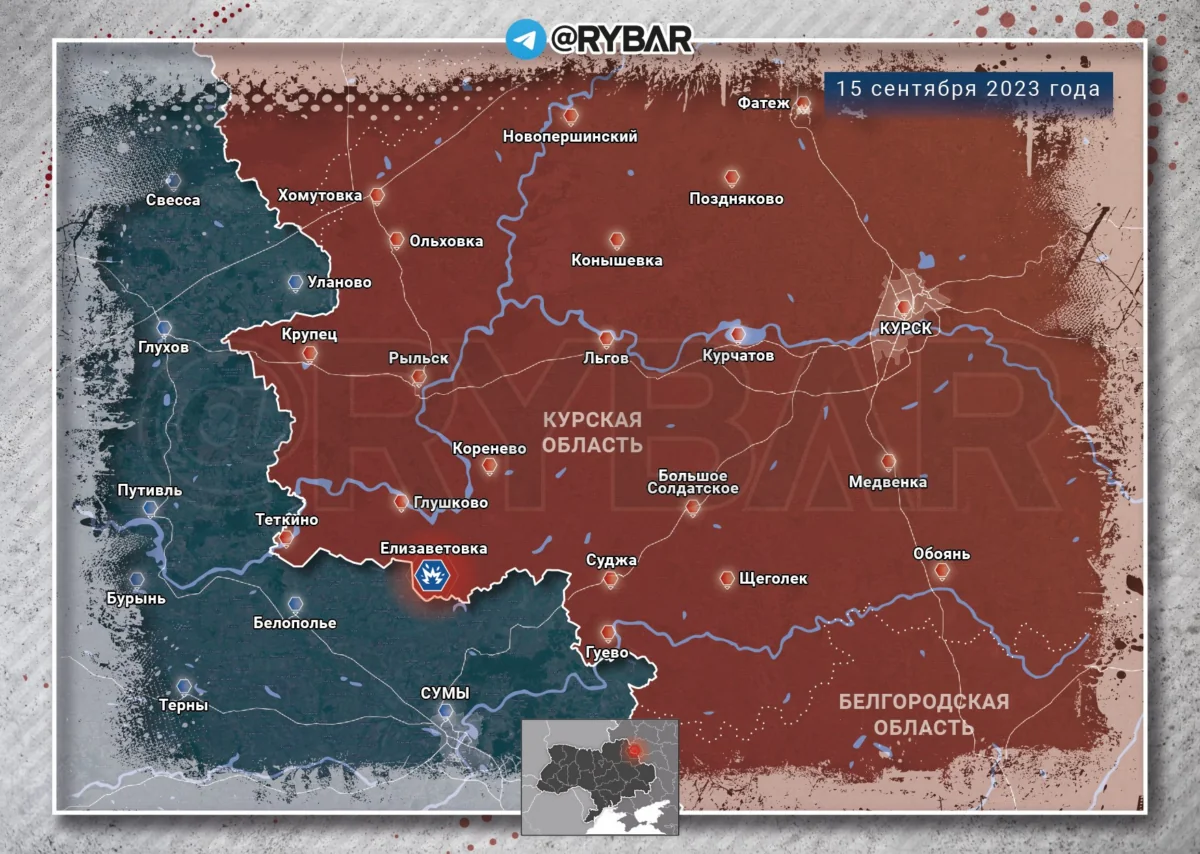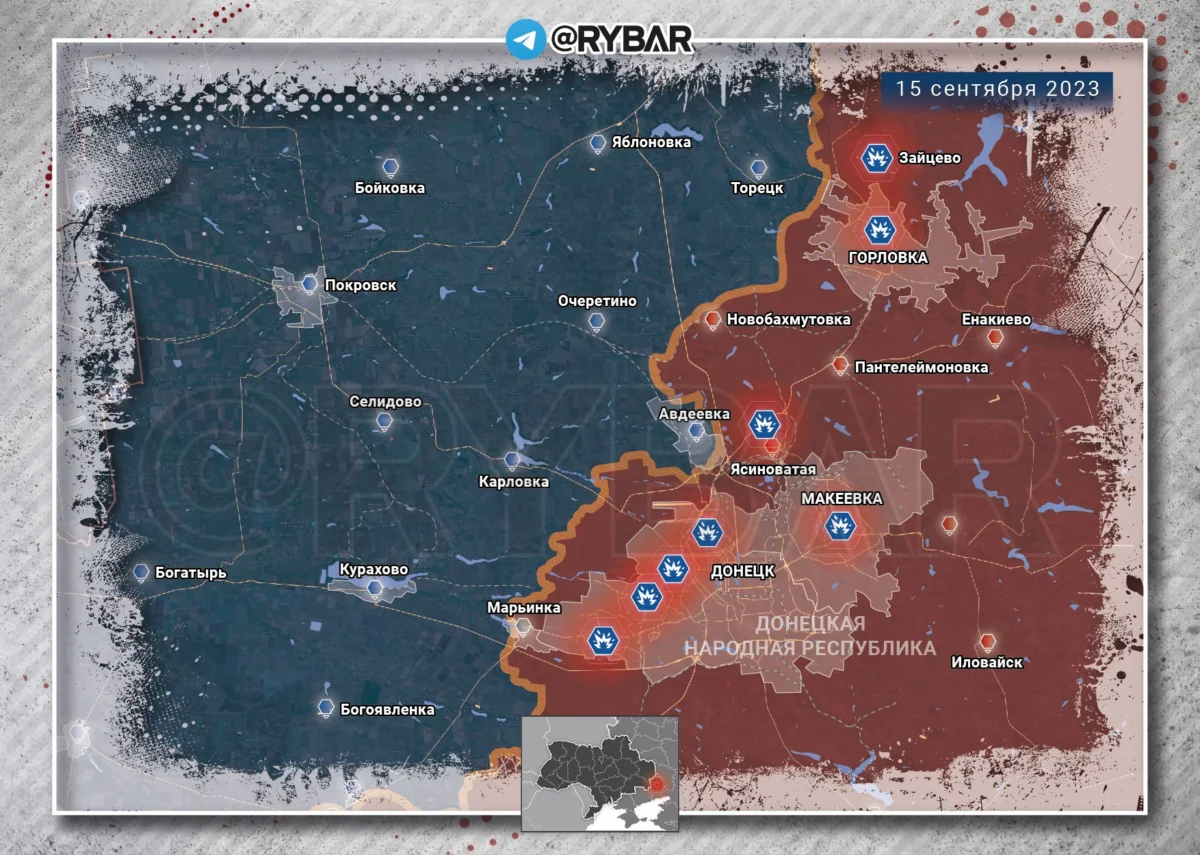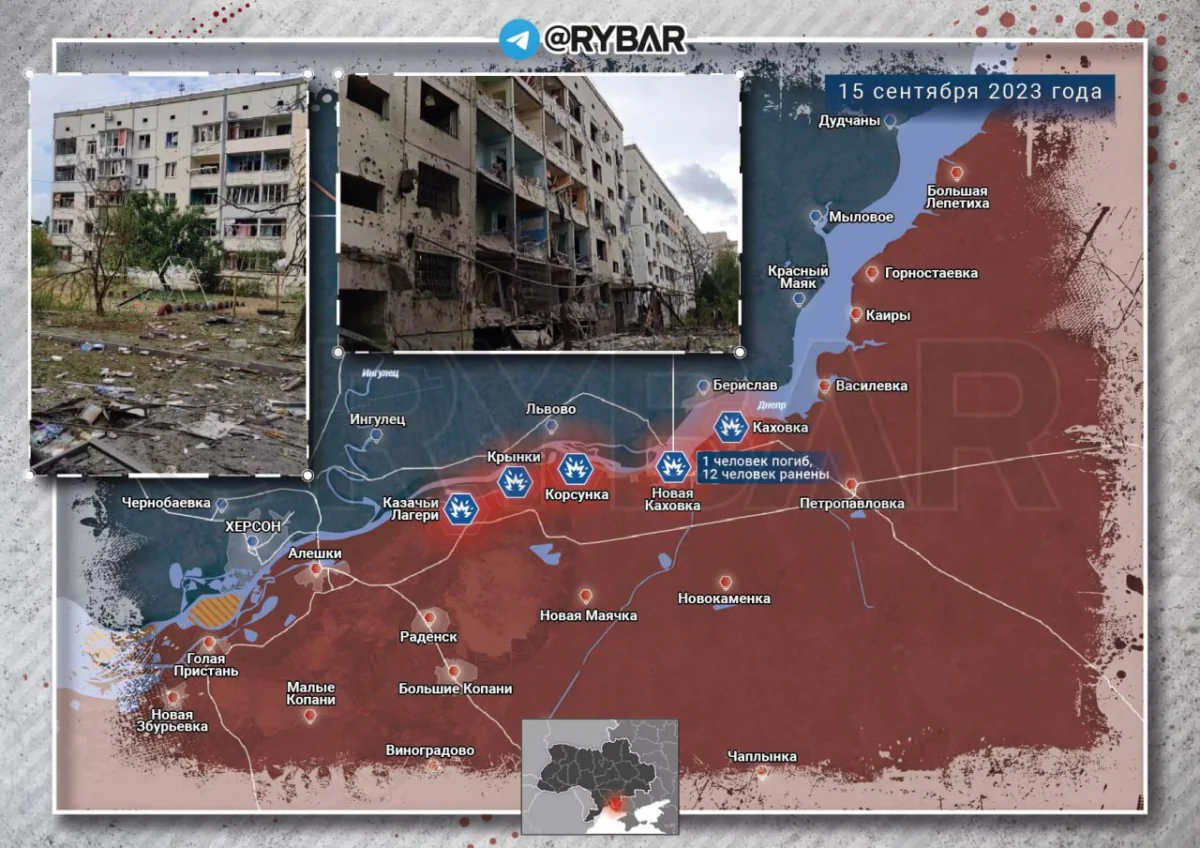POSTED BY @NSANZO ⋅ 09/14/2023

The Russo-Ukrainian war, the international reaction and the distribution of work among kyiv's allies have shown the position of each country in the system of international relations. In the case of the European Union, always in the shadow of the United States, the main lesson is that of subordination. For years, some European countries, which at certain historical moments have maintained the discourse of defending sovereignty, have tried to put on the table the need for a continental security structure beyond the nuclear umbrella of the United States and the existence of NATO. This has been, for example, the case of France, historically less subordinated to the Alliance than other more docile countries in this sense, such as Germany. The issue has not completely disappeared from the agenda, although its terms have changed. To verify this, you only have to observe the reactions to those who dare to utter words like strategic sovereignty or the terms in which people like Josep Borrell now raise the need for European security , that is, for the European Union.
The hostility that Emmanuel Macron encountered in his naive interview about relations between China and the countries of the European Union, which collided with reproaches from the most belligerent part of the German Government, showed that the circumstances do not lend themselves to a minimally independent operation. of the European Union. It is to be expected that this phenomenon will increase in the future in the short and medium term - perhaps also in the long term -, especially with the displacement of the traditional Paris-Moscow axis of power towards the eastern countries politically, economically and ideologically closer to Washington than to Brussels.
Sometimes, claims that claim to aspire to sovereignty come from unexpected sources. This is the case of Josep Borrell, who in this year and a half of common war against Russia has spoken out on several occasions in favor of the independence of the European Union and has stressed the danger it poses for the continent - or more specifically for the parties of the continent that matters in this sense, that is, the countries of the European Union - lack their own security. However, the words of the diplomatic representative of the garden Europeans do not seek independence from the United States, but simply the remilitarization of the continent. The current war has shown that European arsenals, including those of Germany, the great continental power, were not prepared for the possibility of a conventional war. The problem, in the eyes of people without the diplomatic experience that their position implies, is not subordination to the interests and ways of doing things of the United States, but only the lack of military material. Borrell's position, which simply follows the wave of the majority sentiment of the establishment of those who push the European Union to perpetuate itself as the junior partner of the United States, sees the war as the necessary warning to act as it should have been done a long time ago.
In the same way that NATO, which with the recovery of the historical Russian enemy as a military opponent has recovered part of the power to which it has always aspired, the European Union is seeing in the war an opportunity to pressure all types of countries to follow the established course. A course that has not been set by Brussels, which has shown its absolute inability to act autonomously and which for seven years refused to work on a resolution to the Ukrainian conflict, but by Washington. Despite this, people like Josep Borrell, who sometimes seems to act more as the US executive's minister for European affairs than as a leader of continental diplomacy, They seem to believe they are making the European Union stronger based on a speech of rejection of all negotiations and firm support for the idea of fighting Russia to the last Ukrainian. That also seems to be the obligation of the rest of the countries on the planet, at least in the eyes of Washington, Brussels and, of course, kyiv.
In this context, each international forum and each bilateral meeting becomes an exercise in pressure from the countries of that construct called the West in their attempt to get each country to show its support for Ukraine and its rejection of Russia. Without understanding why distant countries that simply want to focus on working on their progress refuse to get involved in war instead of peace, complaints towards certain countries have become recurrent. Josep Borrell's latest comments have referred to Latin American and Caribbean countries. Reviewing the results of the European Union-CELAC summit last July, Borrell insisted on the idea of “how much is in common” between the two areas of the world, a formal tool to later insist on the real message. “But I insist: we also have differences, and Ukraine is an example of them,” said the High Representative of the European Union. The problem, at least according to Josep Borrell's description, does not seem political, but moral. “One perceives that not everyone feels with equal intensity the moral indignation that the Russian aggression in Ukraine produces in us Europeans,” he stated without yet understanding that the fact that the war is taking place in Europe is not a sufficient argument for all countries on the planet have the moral obligation to demonstrate, get involved and align with the Washington consensus. Josep Borrell, dressed in a military jacket, was already acting as Minister of War in the weeks before the start of the Russian military intervention. At that time, He did not view with moral indignation - or with indignation of any kind - Ukraine's open rejection of compliance with the Minsk agreements. At that time, when kyiv remained the only aggressor, the European Union also demanded the world's support for Ukraine, ignoring the situation that the population of Donbass had experienced for eight years. It is not surprising either that, from their simplification of the conflict to the parody of good and evil, people like Josep Borrell did not understand how those places they visited weeks ago, in their case the border Stanitsa Luganskaya, fell into the hands of the Republics. Popular without practically a fight.
Despite the discourse of unity, the European Union is encountering a series of rejections that it did not expect to align with the marked discourse. European countries have agreed without difficulty to Washington's discourse, but not others who have seen the European war as someone else's war or those who aspire to mediate the conflict from a neutral position.
The last G20 forum and the negotiation to reach a consensus on a final declaration are one more example of the difficulties that the United States and its European partners are encountering in imposing their position. Faced with the rejection of China and India - and, of course, Russia -, European countries and the United States have been forced to significantly lower that final message. Despite condemning the nuclear threats, Washington and Brussels have not achieved a statement condemning the “Russian aggression against Ukraine” and have had to settle for a generic wording in which Moscow has seen a victory and Kiev has seen a humiliation.
In reality, the facts are nothing more than evidence of the loss of Western political and diplomatic power in the face of emerging powers such as India and China that, despite their differences, have followed a similar policy on the issue of Ukraine. In the case of India, a country that the West considers easier to attract to its positions, this has translated this time into the withdrawal of diplomatic demands from the United States and the European Union regarding Ukraine. The need for India to obtain a victory with a joint statement at the end of the G20 it organized has taken precedence this time over the compelling Western need to condemn Russia on a daily basis. Ukraine is only a tool and despite moral insistence of the need to support Kiev, Western interests do not begin at the front but look to China. This has been openly declared by Josep Borrell, who in the last few hours has made his priorities clear: the victory of Ukraine, the defeat of Russia and “recalibrating the approach to China.” Not in that order necessarily.
https://slavyangrad.es/2023/09/14/el-jardin-marchito/
Google Translator
*******
Chronicle of a special military operation for September 13, 2023
September 13, 2023
Rybar
Tonight the Ukrainian Armed Forces attacked Sevastopol with Storm Shadow cruise missiles . Three missiles reached the target, causing damage to the landing ship Minsk and the submarine Rostov-on-Don , which were in dry dock . Moreover, this action was part of a larger attack on the Crimean Peninsula , in which unmanned boats were involved.
The Russian Armed Forces conducted a successful counterattack in the Kleshcheevka area in the Bakhmut direction. Russian troops managed to dislodge the Ukrainian Armed Forces from the village, but it remains in the gray zone due to massive enemy artillery fire. Fighting continues in the Andreevka area .
In the South Donetsk direction , Ukrainian formations, adhering to the same tactics, are attacking forest plantations in small groups at the Novodonetskoye - Novomayorskoye line . Also, the forces of the Russian Armed Forces repelled two attacks in the Priyutnoye area .

Ukrainian air force missile strike on Sevastopol
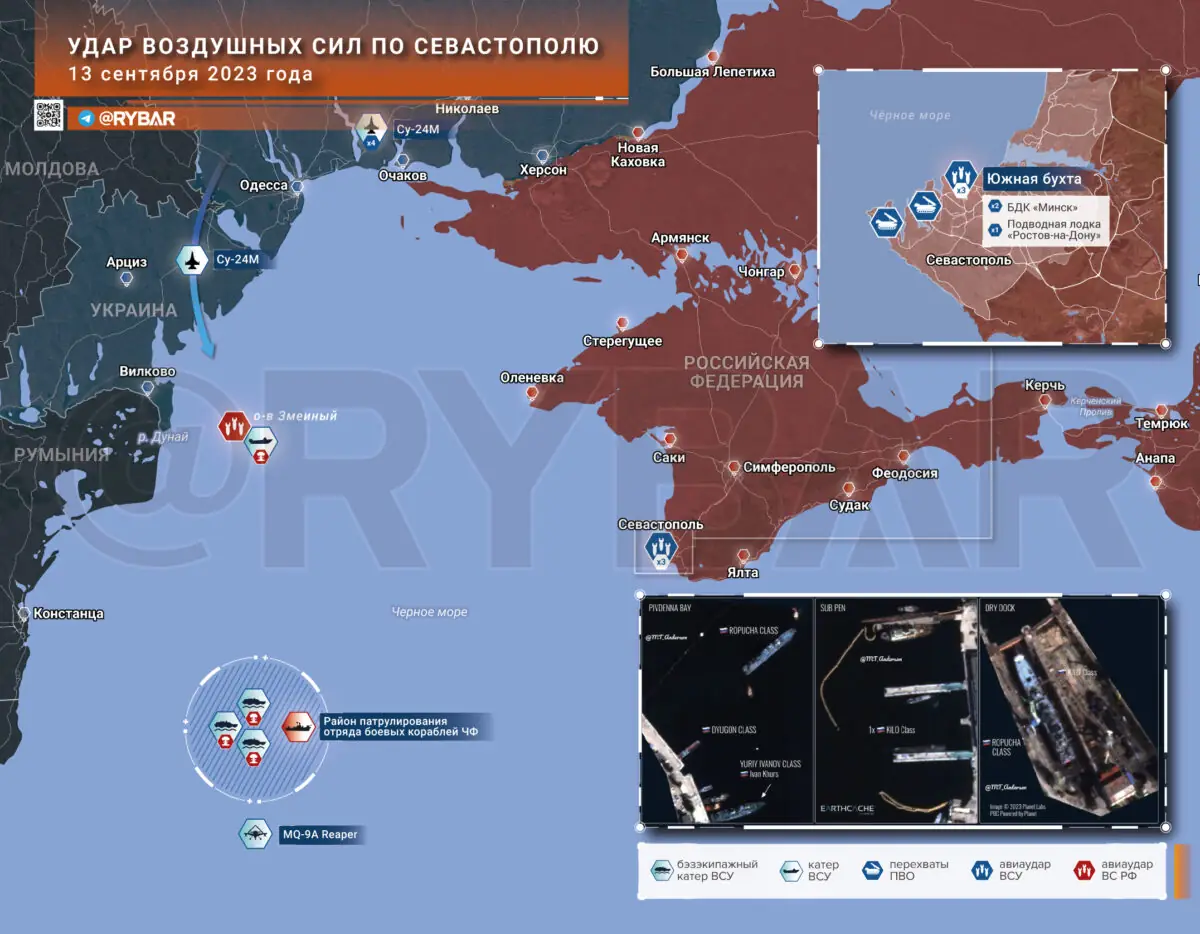
At around 3 a.m. on September 13, Su-24M bombers of the Ukrainian Air Force launched ten Storm Shadow/SCALP cruise missiles at Sevastopol . Five Su-24M took off from the Starokonstantinov airbase in the Khmelnitsky region. Four reached the missile launch line over the Nikolaev and Kherson regions, and one carried out an attack from the direction of Zmeiny Island . Units of the 31st Air Force and Air Defense Division shot down seven targets: five by the Pantsir-S1 air defense system, one by the S-400 division, and the seventh missile by the MiG-31 fighter. Unfortunately, threeThe Storm Shadow missiles reached their target: the landing ship Minsk and the submarine Rostov-on-Don , which were in dry dock, received varying degrees of damage.
At the same time, along with a missile strike on Sevastopol, the Armed Forces of Ukraine with a high degree of probability planned to again land troops on Tarkhankut or gas production installations . All last night until noon, the Ukrainian Armed Forces transported ammunition and fuel on boats to Zmeiny from Vilkovo , preparing for a sortie towards the peninsula. However, two Su-24M naval aviation bombers of the Black Sea Fleet struck the island yesterday at 15.24 and 16.05, as a result of which a fuel and lubricants warehouse, one boat and about 20 people were destroyed . Correction and guidance were provided by the Forpost reconnaissance and strike drone, which monitored the enemy’s movements.
There were three attacks in total between 4 and 6 am. All three uncrewed boats (BEC) were destroyed by the patrol ship Vasily Bykov in the southwestern part of the Black Sea. And it should be noted that once again, during an attack on Russian warships, an American MQ-9A Reaper drone was operating in the same area , which aimed the BEC at the Bykov.
We would like to pay special attention to the presence of “colorful” footage of arrivals from different angles, which will undoubtedly be used by Ukrainian structures to generate reports on the effectiveness of ongoing attacks, since they simplify the collection of information for the enemy.
With a very high degree of probability, raids will continue in the coming days (and not only in Sevastopol). In a recent analysis , we said that massive attacks on the Crimean Bridge should be expected in the coming week . As for today's attack, it looks like a rehearsal (timed, moreover, to coincide with the beginning of the battle for Sevastopol in 1854).
Currently, while the Ukrainian media is savoring the results of the missile strike on Sevastopol, on the sidelines of the Ukrainian General Staff there is a lively discussion about what the Russian authorities will react to the serious damage inflicted on the Black Sea Fleet . As we have said more than once , it is the constant statements about the intersection of multi-colored lines, the lack of at least a proportionate response to the increasingly aggressive actions of the enemy, that is what encourages the West to continue pumping weapons into Ukraine. So it is now: if the Russian military-political leadership does not take action and begin to fight the threat before it appears, then attacks on Crimea and other Russian territories will increase.
And the Armed Forces of Ukraine have plenty of weapons: there are Storm Shadow/SCALP, and German Taurus, and today showed that ATACMS has been in Ukraine for a long time. And this does not take into account the developments of the Ukrainian military-industrial complex such as the Neptunes and S-200. It’s time to understand that the collective West goes as far as we allow. And while the Armed Forces of Ukraine unretaliately hit our bases, factories and cities, you shouldn’t count on capitulation and a rosy ending.
The situation on the front line and combat operations
There are no significant changes in the Starobelsky direction . Positional clashes occur in the Kremensky sector . The Ukrainian Armed Forces, with the forces of the 21st brigade, tried to attack the Tor ledge , but the attack was thwarted thanks to the artillery work of the Russian Armed Forces. In Serebryansky forestry, Azov fighters also tried to take more advantageous positions, but they were noticed in time by our observers.
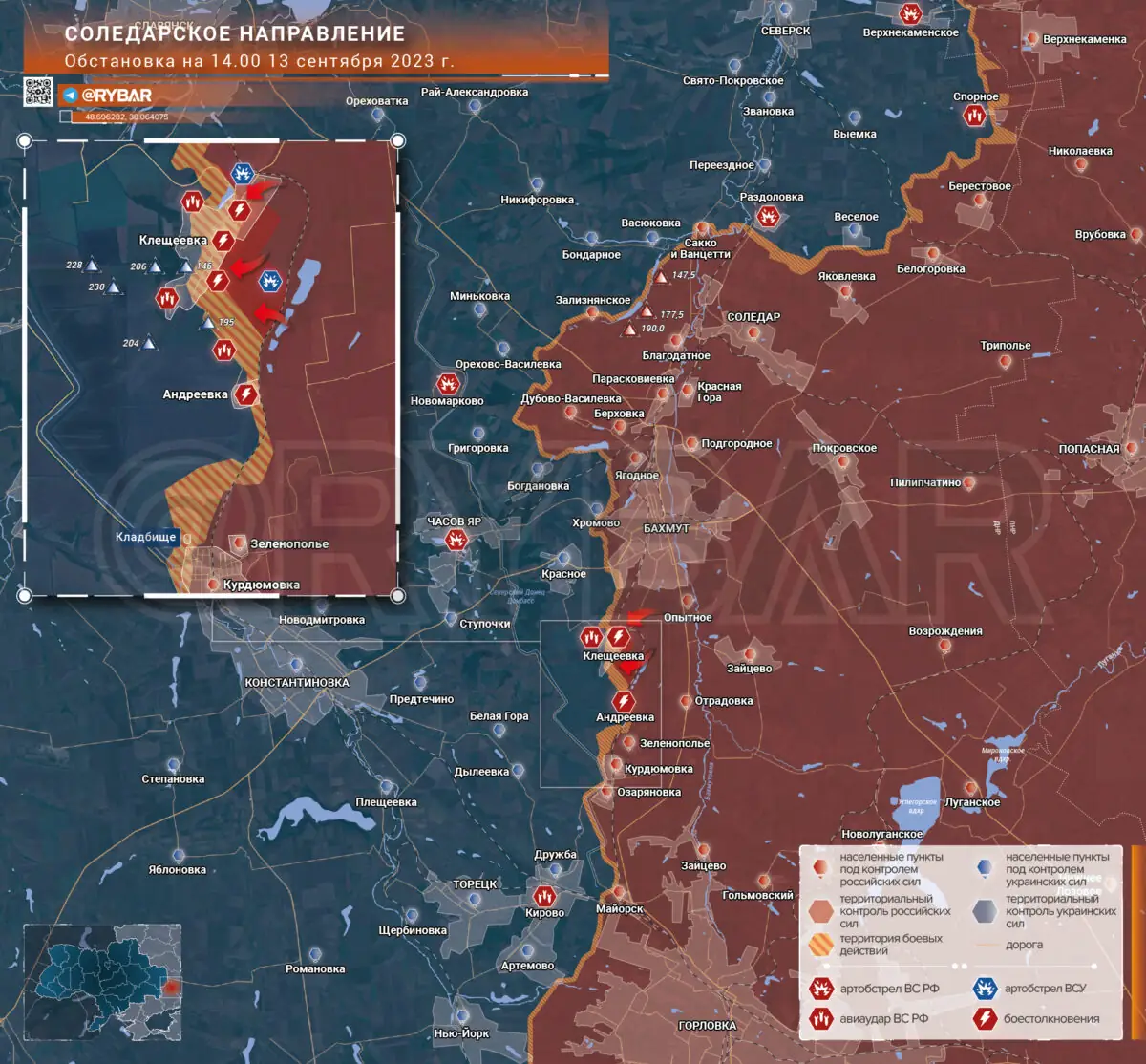
In the Soledar direction, the Russian Armed Forces carried out a successful counterattack in the Kleshcheevka area . Intense clashes broke out southwest of Bakhmut at the Kleshcheevka - Andreevka line . As a result of a counterattack by combined units of the Russian army, they managed to drive the enemy out of Kleshcheevka. Despite this, the village remains in the gray zone due to the massive fire of the Ukrainian Armed Forces in the village. Russian troops hold the northeastern outskirts, while Ukrainian forces concentrate forces to the west for a new attack.
The situation in Andreevka remains in the fog of war . This morning information appeared that the village had been completely recaptured by fighters of the Russian Armed Forces, but a little later doubt arose again due to conflicting information about the line of control along the railway track. Due to a lack of evidence, we have placed the village in a gray area until more definitive data becomes available. Nevertheless, positional battles at Andreevka continue.
In the Donetsk direction, fighting continues in the vicinity of Avdeevka and the Maryinsky sector . The situation in the Opytny area is still not reliably known, but most sources claim positional battles.
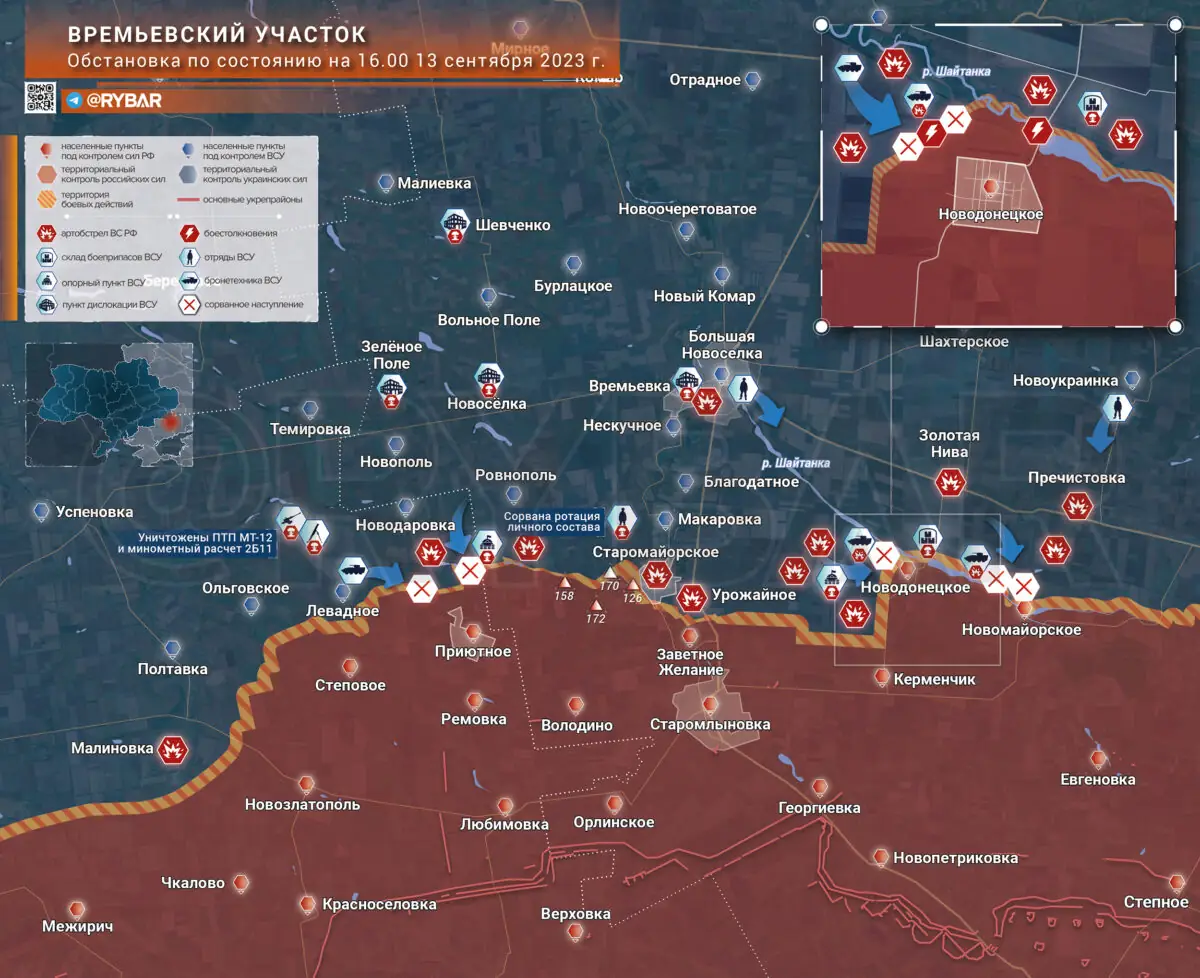
In the Vremyevsky sector, the enemy continues to try to improve the tactical position by attacking forest plantations at the Novodonetskoye - Novomayorskoye line . The Armed Forces of Ukraine repeat their usual actions over and over again: individual infantry fighting vehicles and armored fighting vehicles bring assault groups of 10-20 people to the line of combat contact, who are trying to gain a foothold in new positions. Since the morning, units of the Ukrainian Armed Forces have carried out four similar attacks, which were unsuccessful. The Russian Armed Forces quickly manage to detect the enemy’s movement on the approach, cover the personnel and equipment of the Armed Forces of Ukraine with artillery, forcing the Ukrainian formations to retreat.
Two surges from Levadnoye in the direction of Priyutnoye are reflected . In the forest plantations near the populated area, the enemy has been accumulating manpower and armored vehicles in recent weeks. Nevertheless, Russian units regularly identify strongholds of the Ukrainian Armed Forces and strike them with artillery.
The Ukrainian command, obviously, does not yet plan to abandon a further offensive in the Vremevsky sector. However, after changing the direction of attack from Staromlynovka to Novomayorskoye and the lack of success in conducting “meat assaults,” the 18th battalion of the 35th Marine Brigade of the Ukrainian Armed Forces lost partial combat capability. Additional forces are regularly transferred to the Prechistovka area to replenish Ukrainian units, which also become a tasty target for Russian artillery.
There are no significant changes at the Orekhovsky site . Fighting continues between Verbov and Rabotino , but Russian troops are confidently repelling the attacks of the Ukrainian Armed Forces. Aviation artillery works almost continuously against the enemy, while the latter are increasingly using heavy bombs with UPMK.
Shelling of rear areas and residential areas

Ukrainian formations continue to terrorize the civilian population of the Belgorod region . The governor of the region, Vyacheslav Gladkov, reported on the shelling of the village of Urazovo , Valuysky urban district. Two social facilities were damaged. According to Mash, kindergarten No. 2 and a nursing home were hit by the Ukrainian RZSO. There were no casualties. In addition, local sources reported shelling of Novaya Tavolzhanka , Kozinka , as well as air defense work in the Valuyki area .
The Ukrainian Armed Forces do not stop the artillery terror of the Donetsk agglomeration . As a result of shelling by Ukrainian forces, six residents of the DPR were injured, 22 houses and civilian infrastructure were damaged. The Ukrainian Armed Forces attacked populated areas with cannon and rocket artillery, including NATO caliber, and cluster munitions were also used. Several missiles were intercepted by Russian air defense systems.
Daily strikes continue on the left bank of the Kherson region . The enemy attacked civilian infrastructure and residential buildings in Kakhovka , Novaya Kakhovka , Cossack Camps and Tavriysk . A gas pipeline was damaged in Novaya Kakhovka; there is currently no information about casualties.
Political events
On the protection of the rights of national minorities in Ukraine
Financial Times published an interview with the Minister for European and Euro-Atlantic Integration of Ukraine Olga Stefanishina . The politician announced the Kiev regime’s readiness to carry out legislative reforms to protect the rights of national minorities .
In this regard, the Ukrainian leadership plans to organize negotiations with representatives this week of Hungary and Romania on the issue of introducing Hungarian and Romanian language classes in schools. One of Kyiv's conditions is the need to maintain a balance with the Ukrainian language so that students can receive further education and get jobs outside the territories inhabited by national minorities. It will be interesting to find out where they can find a job, given some of the economic difficulties in Ukraine.
Such actions by the Ukrainian authorities are intended to demonstrate to the leadership of the European Union the visibility of reforms and readiness for negotiations . Previously, the European Commission set seven conditions for the Kiev regime, including the protection of national minorities, necessary to begin consultations on joining the organization. It should be understood that fulfilling all of them and joining the EU are far from the same thing . It may take a long time to implement all the requirements, and by this time the “Ukraine” project will no longer be relevant at all .
The very proposal of the Ukrainian leadership on legislative protection of the language is a dismissive gesture . The main complaint of Romania and Hungary is far from linguistic discrimination , but that their citizens are mobilized and sent to the meat grinder.
About Western support for the Armed Forces of Ukraine
A senior US National Guard official, Michael Law , said that the first Ukrainian pilots will be able to undergo F-16 training in the US by the end of this year. Air Force pilots must report to Morris Air Force Base in Arizona and complete a three-month course. After this, they must undergo additional NATO training in Europe. At the same time , Germany handed over to the Ukrainians a new package of military aid, which included shells of various calibers, ammunition for firearms, communications systems and 20 Marder infantry fighting vehicles with ammunition.
Embargo on Ukrainian grain in Eastern European countries
Hungarian authorities reported that they had reached an agreement with Romania , Slovakia and Bulgaria to extend the embargo on Ukrainian agricultural products after September 15. Poland takes the same position . In this regard, Zelensky plans to meet with the Polish president Andrzej Duda to discuss a ban on the import of Ukrainian grain. Previously, Ukraine threatened to file a claim against Poland in the WTO.
Meanwhile, the head of the office of the European Commissioner for Trade, Michael Geger, submitted to the European Commission a proposal to extend the embargo on Ukrainian agricultural products to the countries listed above after September 15. This was done based on an analysis of the market situation. However, the EC's chairman, Ursula von der Leinen, must put an end to this issue .
About the scandalous statements of Mikhail Podolyak
The Chinese Foreign Ministry responded to statements by Advisor to the Presidential Office Mikhail Podolyak about the “weak intellectual potential of India and China.” According to the representative of the Chinese Foreign Ministry, Mao Ning, Podolyak must provide an explanation of his words. The adviser himself stated that his words were distorted by Russian propaganda and were misunderstood.
https://rybar.ru/hronika-speczialnoj-vo ... 2023-goda/
Google Translator
******
Othello and the war: Berlin Bulletin, September 11, 2023
By Victor Grossman (Posted Sep 11, 2023)
The war in Ukraine, a horrific tragedy for the people of that unhappy country, fateful as well for many young Russians and potentially menacing for all the world, with burnished weapons of every size and destructive power waiting in silos or submarines for a slip, a blunder, a provocation. Tragic byproducts are further splits in weak, divided peace and leftist movements around the world. Who should bear the blame? For many the answer is a foregone conclusion. For some an inner dispute continues.
As one of those plagued by such torment, my bookish background calls to mind a tragedy of the stage—one of the most memorable. Is a parallel possible? The handsome African general Othello, though deeply in love with his beautiful young Venetian wife Desdemona, uses his strong hands to strangle her—a shocking crime. But, scene for scene, Shakespeare shows us how his sly enemy Iago conspired to cause this tragedy, misusing all around him to make Othello believe that his Desdemona betrayed his love. Do Iago’s intrigues absolve Othello? They cannot. But they reveal where the blame is really concentrated: Iago’s hatred, greed, jealousy, plain evilness, paired with a cunning ability to dissemble and deceive. “But I will wear my heart upon my sleeve,” Iago resolves.
I am not what I am.
Can a pure coincidence—a change of two letters in Iago’s name—lead us to the conniving spirit weaving a web which Vladimir Putin ripped through in February 2022? He is certainly no Othello, and Zelensky has zero similarity with Desdemona. But what about NATO? Hasn’t its role been a long series of Iago-like intrigues, deception—and violence as well? Wasn’t its focus from its start directed at defeating the USSR, which for President Reagan was “the focus of evil in the modern world”?
An article in the Washington periodical “The Hill” described key methods used to defeat this “evil empire“: “… covert support of the Solidarity movement in Poland, an increase in pro-freedom public diplomacy through instruments like the National Endowment for Democracy, a global campaign to reduce Soviet access to Western high technology and a drive to hurt the Soviet economy by driving down the price of oil and limiting natural gas exports to the West.” This “secret declaration of economic war” forced the USSR, still not fully recovered from the immense damage done by the fascist invaders in World War II, to spend some $8 billion annually to deflect its impact.
However, the offensive was successful. George H. W. Bush could announce:
For over 40 years, the United States led the West in the struggle against Communism and the threat it posed to our most precious values… The Soviet Union itself is no more. This is a victory for democracy and freedom…
But soon after politely thanking Mikhail Gorbachev “for his intellect, vision and courage” in helping to make this victory possible, U.S. favor switched to the man who used tanks against the elected Duma so as to throw Gorbachov out and seize power. Bush made future principles clear:
We have been heartened and encouraged by President Yeltsin’s commitment to democratic values and free-market principles, and we look forward to working with him.
The Cold War chapter of history seemed closed. In January 1990 West German Foreign Minister Genscher stated that “the changes in Eastern Europe and the German unification process must not lead to an ‘impairment of Soviet security interests.’ Therefore, NATO should rule out an ‘expansion of its territory towards the east… closer to the Soviet borders.’” On February 10 Chancellor Kohl promised; if the Soviets approved German unification NATO would not expand to the east. Secretary of State James Baker assured Foreign Minister Shevardnadze three times of the “not one inch expansion” and told Gorbachev that “… also for other European countries it is important to have guarantees… not an inch of NATO’s present military jurisdiction will spread eastward.”
But—shades of Iago—this pledge was not put into writing, there were no signatures. Within a year Poland’s Foreign Minister visited NATO Headquarters and President Lech Walesa said that Poland wants “a safe Europe, which is guaranteed by NATO”. In March 1992, NATO Secretary General Manfred Wörner assured Poland that “the door to NATO is open.” In 1999 Czechia, Hungary and Poland became NATO members, followed in 2004 by Bulgaria, Estonia, Latvia, Lithuania, Romania, Slovakia and Slovenia.
Yeltsin was a weak, acquiescent head of state who opened the Russian door to capitalists from near and far (the Russian ones were called oligarchs). By 2000 the population had been robbed of billions, the economy neared total collapse—until a tough new ruler took over. Vladimir Putin rescued the economy in the nick of time, and was intent on raising Russia up from the third level it had been demoted to and re-establishing it as a major power.
In Munich, in February 2007, Putin recalled the “one inch” promises and questioned “the so-called flexible frontline American bases with up to five thousand men in each. It turns out that NATO has put its frontline forces on our borders… I think it is obvious that NATO expansion does not have anything to do with ensuring security in Europe. On the contrary, it represents a serious provocation that reduces the level of mutual trust. And we have the right to ask: against whom is this expansion intended? And what happened to the assurances our western partners made after the dissolution of the Warsaw Pact? Where are those declarations today? No one even remembers them.”
The expansive plan to surround European Russia, economically and militarily, centered on Ukraine. As early as 2008, in a secret cable made known by Julian Assange, the American ambassador to Moscow, William Burns, sent a far-sighted warning to Washington:
Following a muted first reaction to Ukraine’s intent to seek a NATO Membership Action Plan at the Bucharest summit, Foreign Minister Lavrov and other officials have reiterated strong opposition, stressing that Russia would view further eastward expansion as a potential military threat.
“NATO enlargement, particularly to Ukraine, remains ‘an emotional and neuralgic’ issue for Russia, but strategic policy considerations also underlie strong opposition to NATO membership for Ukraine and Georgia. In Ukraine, these include fears that the issue could potentially split the country in two, leading to violence or even, some claim, civil war, which would force Russia to decide whether to intervene,” the cable said.
Burns was promoted; he now heads the CIA. But his wise warning was purposefully disregarded.
This became crystal clear when Victoria Nuland, Hillary Clinton’s right-wing aide, spent $5 billion or more to organize an opposition to Ukraine’s elected government and then overthrow it in a bloody putsch in February 2014. A hacked telephone call revealed that she had even selected the next premier—in league with gangs of armed men, many wearing Nazi symbols, some giving Hitler salutes, and all honoring their dead hero Stepan Bandera, who had urged and led the murder of thousands of Russians, Jews, Poles and Hungarians in 1941.
In March 2016 the expert Australian journalist John Pilger warned that nuclear warhead spending “rose higher under Obama than under any other American president… In the last 18 months, the greatest build-up of military forces since World War Two, led by the USA, is taking place along Russia’s western frontier. Not since Hitler invaded the Soviet Union have foreign troops presented such a demonstrable threat to Russia.
Ukraine has become a CIA theme park. Having orchestrated a coup in Kiev, Washington effectively controls a regime that is next door and hostile to Russia: a regime rotten with Nazis, literally. Prominent parliamentary figures… openly praise Hitler and call for the persecution and expulsion of the Russian-speaking minority… In Latvia, Lithuania and Estonia—next door to Russia—the U.S. military is deploying combat troops, tanks, heavy weapons.
In fact, the first measures taken by the new USA-backed Kiev government were to suppress the Russian-speaking parts of the country—leading to the breakaway of Crimea and the Donbas region—and to civil war. And while swift membership in NATO was not possible, a series of naval and military maneuvers on Russia’s southern borders was pursued, with most NATO members joining in.
In February 2022, just as Ambassador Burns had warned, Russia did feel forced to intervene. A frightening decision, with terrible, bloody results. I must condemn Putin, just as the audience blames Othello. But should Iago be praised?
What is the goal of those who finance, support and largely control the leaders in Kiev—and urge a battle until victory? Pres. Biden, at a Business Roundtable meeting of the wealthiest American elite, declared,
There’s going to be a new world order out there, and we’ve got to lead it. We’ve got to unite the rest of the Free World in doing it.
Noble sentiments—invoked in countless variations by almost every president, especially when the USA was engaged in a subversion, conflict, regime change, blockade or direct military intervention. No, when leafing through my history books, I cannot find one case where such actions by the USA and its NATO gauntlet in any way furthered a better “new world order”—or anything but death and destruction, chaos, misery, corrupt new rulers: Iran, Guatemala, Haiti, Dominican Republic, Brazil, Bolivia, Argentina, Honduras, Iraq, Congo, Ghana, Libya, most dramatically in Chile, most lengthily against Cuba, most catastrophically in Vietnam, and perhaps most bitterly in decades of support for apartheid in South Africa and the enforced “settlement” of Palestine. Is there a single example where Washington’s ”new order” brought improvement, not new suffering? I can think of none!
Looking beyond the Othello level to the world stage, I see three immense threats endangering not only the people of Ukraine and quite likely Russia, but all of us, everywhere. First of all—the climate catastrophe, heightening temperatures spreading from the Equator to the poles and, with them, disappearing islands, retreating coastlines, the extinction of fauna and flora, the despair of whole populations faced by droughts, floods, fires and hurricanes.
Secondly, in response to worsening living standards for millions, caused by the environmental collapse, by wars such as in Ukraine, by the resulting distortions of world trade and by weak labor movements whose resistance is limited by the lack of an active, uncorrupted, multipolar Left, there is a growing danger of brutal fascism. This became all too apparent in Washington in January 2021, it is visible in the growing strength of the Alternative for Germany (AfD), it is reflected in elections in France, Italy, Scandinavia, Austria and elsewhere.
Thirdly, and most menacingly, though all too often overlooked or ignored; the danger of atomic conflict and world conflagration. With growing military confrontation and both sides’ fear of defeat, a simple error of judgement, a mistakenly strayed missile, perhaps a local provocation could set in motion a chain leading to total catastrophe.
Lurking behind all three, I am convinced, we can find a dwindling number of obscenely wealthy clusters of the world’s multimillionaires and billionaires. No matter which field we examine, we find more or less a handful of corporations dominating it. Five or six auto makers, five or six pharmaceutic developers, even less seed and herbicide monopolists, a few mighty film-makers, newspaper czars and TV barons, even among book publishers. There are perhaps a few dozen of such mighty groups.
Three are especially alarming. The giant fossil fuel drillers, dealers and transporters, many more than a century in merciless boring and mining, have done the most to poison the world, from the Arctic to the Gulf of Mexico, from Amazon forests to the Niger delta—while bribing the hungry media bosses to help them dupe millions in the belief that the climate damage they cause does not take place.
Potentially even more dangerous is the “Silicon Valley” kind of wizardry, dominated by Apple, Microsoft, Amazon, Twitter/X, Facebook, Google, which increasingly influence our shopping, our entertainment, our social life (or lack of it), our mind patterns, with growing control of our purchases, preferences, movements, even, with such as Alexa, in our living rooms and bedrooms. Also our political decisions! And AI threatens far worse!
Yet even more fearsome are the armaments manufacturers. Dominated by six or seven in the USA, augmented by makers of mass killer machines in other countries, with the Germans, like Krupp or Rheinmetall having the lengthiest, ugliest backgrounds. These companies, to stay on top and please their profiteers, must produce more and more. When arms storage sites and hangars are full, their contents must be used to make room for more; expiration dates and warnings of obsolescence also demand action! Such manufacturers can never favor peaceful solutions; they would be their undoing!
These ruling clusters of the extremely wealthy—and there are some Russian and Chinese oligarchs among them—are influencing, dominating or controlling minds and actions of governments everywhere. It is they who deceive and defy on climate issues, it is they who, while rarely resorting to genuine fascism—as yet—frequently hold its ugly features and methods in reserve, not all too overtly. But when worsening living conditions or better organizers lead to growing resistance or even rebellion from below, endangering a smooth flow of profits or even their end, those reserves, impatiently polishing their weapons and their connections, are kept waiting eagerly in the wings.
Which brings me back to the stage—to Othello and Iago. I stress again; I can never approve of killing, no matter how motivated, not of killing and destruction in a neighbor’s country, except in self-defense. And Shakespeare lets Othello die, killing himself in a form of retribution.
But neither can I accept a lack of clarity about who really caused and precipitated the tragedy. Putin is no angel, no hero, not an Othello. Nevertheless, I believe that he is primarily motivated by the wish to defend Russia against encirclement, suffocation followed by subservience or dismemberment—the fate of an insubordinate Yugoslavia not so long ago. Perhaps he keeps in mind the fates of men who defied Washington’s drive for world hegemony: the heart attack of Milošević in a prison cell, the death of Allende, the torture and dissolving in acid of Patrice Lumumba, the castration and public hanging of Afghanistan’s Najibullah, the hanging of Saddam Hussein, the murder and oceanic body disposal of Osama bin Laden, the sodomy killing of Muammar Gaddafi.
Until the war on Ukraine began most of the violence in the world was a product of the intrigues, the aggression, the weapons managed and controlled by those powerful clusters who maintain such a tight control of congressmen and senators, half of them millionaires, of Supreme Court majorities, almost always of the White House, also of the Pentagon, CIA, NED, FBI and dozens of other institutions. It is they, a tiny number, less than 0.1%, whose wealth outweighs that of half the world’s population, but who can never be sated. They want to rule the whole world.
Two large barriers remain, two big countries bar their course. They are not the faultless, Utopian models some of us once dreamed of; they, too, require a host of basic changes and improvements. But they are barriers all the same, tough barriers in fact, also armed with Satanic weapons.
The world needs to drop a curtain on this confrontation, increasingly threatening in Ukraine, increasingly dangerous in East Asia. Regardless of differenhttps://pbs.twimg.com/media/FvQ6glFXoAIxfdA?format=jpg&name=4096x4096ces it must be halted—not bloodily as in Shakespeare’s tragedy, but with some form of détente, however reluctant either side may be.
Such a cease fire and successful negotiations must be the world’s immediate and urgent goal. Ultimately it must face a deeper imperative; not only reining in the super-rich, super-powerful intriguers—but, as they are an outdated but constant source of danger and dismay, their total banning from the world stage.
https://mronline.org/2023/09/11/othello ... r-11-2023/
Well Victor, what would you have Putin do? And how is "the world" going to do anything? As it stands this can only end in one way.....
******
Why Was Zelensky Overly Defensive In His Latest Interview With The Economist?
ANDREW KORYBKO
SEP 14, 2023
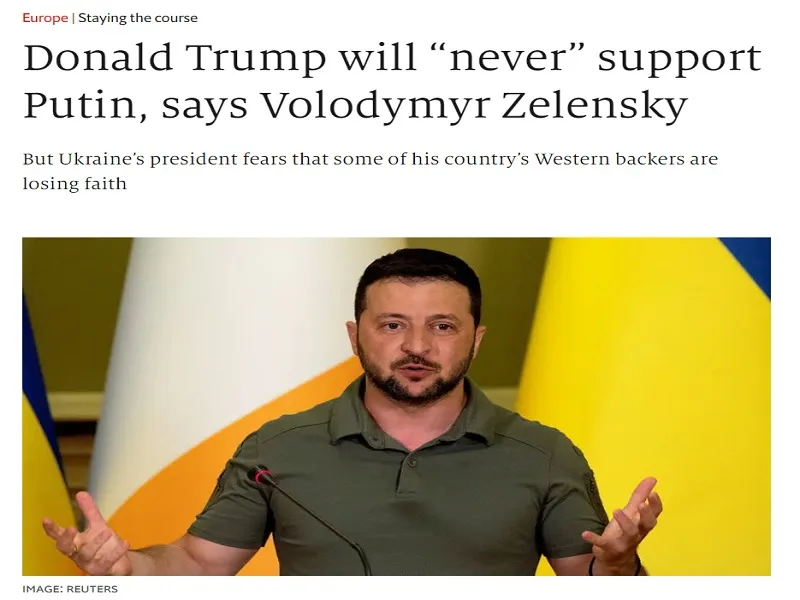
The analysis argues that his new attitude is because some Western officials are likely already holding unofficial talks with Russia.
Zelensky’s characteristic cockiness was conspicuously absent from his latest interview with The Economist. He instead came off as overly defensive, most likely because he finally realized that the scale, scope, and pace of his Western patrons’ multidimensional aid can’t continue indefinitely. What follows are the pertinent highlights from his interview that point to this change of attitude, which will then be analyzed to help observers get a better sense of where the NATO-Russian proxy war might be headed.
----------
* Zelensky is walking back expectations of a swift maximalist victory
- “Volodymyr Zelensky does not want to think about a long war, let alone talk about the possibility to Ukrainians, many of whom still dream of winning fast. But that is precisely what he is preparing for. ‘I have to be ready, my team has to be ready for the long war, and emotionally I am ready,’ Ukraine’s president says in an interview with The Economist.”
* He’s beginning to suspect that his Western patrons are lying to his face
- “’I have this intuition, reading, hearing and seeing their eyes [when they say] ‘we’ll be always with you,’’ he says, speaking in English (a language in which he is increasingly fluent). ‘But I see that he or she is not here, not with us.’”
* They seem increasingly interested in resuming talks with Russia
- “Some partners might see Ukraine’s recent difficulties on the battlefield as a reason to force it into negotiations with Russia. But ‘this is a bad moment, since Putin sees the same.’”
* Zelensky claims that those who curtail aid to Ukraine would be doing Russia’s bidding
- “Ukraine’s president is keenly aware of the risks to his country if the West starts to withdraw its economic support. That would damage not just Ukraine’s economy, but its war effort, too. He puts it in stark terms. ‘If you are not with Ukraine, you are with Russia, and if you are not with Russia, you are with Ukraine. And if partners do not help us, it means they will help Russia to win. That is it.’
* Electoral considerations might still result in that happening though
- “With several of his Western allies (including America) holding elections next year, Mr Zelensky knows that sustaining support will be difficult, especially in the absence of significant progress at the front.”
* He’s therefore plotting to manipulate voters into pressuring their politicians against this
- “He still believes that the best way to convince governments, [to make them] believe they are on the right side, is by pushing them via the media. People read, people discuss, people make up their minds and people push,’ he says.
It was public opinion that drove politicians to increase arms supplies to Ukraine in the early days of the war. Scaling down that help, he argues, may anger not just Ukrainians but Western voters. They will start asking what the whole effort was for. ‘People will not forgive [their leaders] if they lose Ukraine.’”
* Nevertheless, Zelensky is hedging his bets by praising Trump just in case he returns to power
- “If Mr Putin hopes that a victory by Donald Trump in America’s presidential election in 2024 would deliver him victory, he is mistaken. Trump would ‘never’ support Vladimir Putin. ‘That isn’t what strong Americans do.’”
* He’s also trying to pressure Biden by reminding him of the Afghanistan debacle
- “He expects Joe Biden will stay the course if he is re-elected. (‘Do they want Afghanistan, part two?’)”
* Zelensky is begging the EU to accept Ukraine as a member in order to boost his people’s morale
- “And he hopes that the European Union will not only keep supplying aid, but will open negotiations over the accession process for Ukraine this year. (That move is widely expected to happen at a summit in December.) ‘It will support morale in Ukraine. It will give this energy to people.’”
* He also defends the counteroffensive’s slow progress by claiming that it saves his soldiers’ lives
- “Ukraine would have lost ‘thousands’ had it followed advice to commit many more troops, he says. This is not the sort of war where ‘the leader of a country says the price doesn’t matter.’ That is the difference between him and Vladimir Putin. ‘For him, life is nothing.’”
* Zelensky thinks that those who are talking to Putin are being duped by the modern-day Hitler
- “Those who choose to talk to the man in the Kremlin are ‘tricking themselves’, much like the Western leaders who signed an agreement with Adolf Hitler at Munich in 1938 only to watch him invade Czechoslovakia. ‘The mistake is not diplomacy. The mistake is diplomacy with Putin. He negotiates only with himself.’”
* He ominously hints that Ukrainian refugees might riot if the West curtails aid to their country
- “There is no way of predicting how the millions of Ukrainian refugees in European countries would react to their country being abandoned. Ukrainians have generally ‘behaved well’ and are ‘very grateful’ to those who sheltered them. They will not forget that generosity. But it would not be a ‘good story’ for Europe if it were to ‘drive these people into a corner’.”
* Ukraine would require a “new social contract” if it doesn’t achieve maximum victory soon
- “A long war of attrition would mean a fork in the road for Ukraine.
The country would lose even more people, both on the front lines and to emigration. It would require a ‘totally militarised economy’. The government would have to put that prospect to its citizens, Mr Zelensky says, without specifying how; a new social contract could not be the decision of one person. Almost 19 months into the war, the president says he is ‘morally’ ready for the switch. But he will only broach the idea with his people if the weakness in the eyes of his Western backers becomes a ‘trend’.
Has that moment come? No, not yet, he says. ‘Thank God.’”
----------
Everything that he shared is the natural evolution of the points contained in the following analyses:
* 25 August: “The NYT & WSJ’s Critical Articles About Kiev’s Counteroffensive Explain Why It Failed”
* 29 August: “Zelensky’s Latest TV Interview Shows How Much The Conflict’s Dynamics Have Shifted”
* 31 August: “Vivek Ramaswamy’s Plan For Ending The NATO-Russian Proxy War In Ukraine Is Pragmatic”
* 4 September: “Kiev’s Military Shake-Up Suggests That Peace Will Remain A Distant Prospect”
* 9 September: “WaPo Reported That Ukrainians Are Distrustful Of The West & Flirting With A Ceasefire”
All sides are growing fatigued, Kiev still wants to carry on though, but Western calculations are changing.
----------
The following points are revealed by reading between the lines of Zelensky’s latest interview:
* Some Western officials are likely already holding unofficial talks with Russia
* This is probably due to a combination of military-strategic dynamics and electoral interests
* That’s why Zelensky is overly defensive and aggressively trying to pressure them into reconsidering
* What he fears is them making continued aid conditional on him officially resuming talks
* He’s therefore plotting to meddle in their upcoming elections via infowar means
* Zelensky might also order the SBU to organize Ukrainian refugee riots all across Europe
* If he fails and talks are inevitable, then he hopes for EU membership as a consolation
* Zelensky might then hold elections and resume talks if he wins by claiming a popular mandate
Regarding the first point, these pieces from Western and Russian media suggest mutual interest in talks:
* The New Yorker: “The Case for Negotiating with Russia”
* The New York Times: “As Ukraine’s Fight Grinds On, Talk of Negotiations Becomes Nearly Taboo”
* RT: “Sergey Poletaev: The West knows Ukraine’s counteroffensive is failing. So what’s plan B?”
* TASS: “Russia can’t stop hostilities if Ukraine conducts counteroffensive, Putin says”
* TASS: “Kiev delays talks making it more difficult to negotiate later — Lavrov”
The first piece promotes the arguments by RAND Corporation’s Samuel Charap for a ceasefire while the second laments that the Western elite as a whole aren’t yet ready to seriously consider stopping the bloodshed. The RT one adds some Russian arguments to why a ceasefire could be in the Kremlin’s interests, while the last two from TASS show that the its top officials are indeed interested in this, though no tangible progress can be made (at least officially) till the counteroffensive ends.
Objectively existing military-strategic developments from over the summer and the subjectively interpreted narratives that are nowadays being pushed by both sides of the NATO-Russian proxy war in recent weeks compellingly suggest growing interest in freezing the conflict. That said, there are also powerful forces within both camps who don’t want that to happen, not to mention Kiev as well. This therefore complicates the path to peace, but everything is still moving in that direction in spite of them.
As was argued throughout this piece, Zelensky was overly defensive in his latest interview with The Economist precisely because some Western officials are likely already holding unofficial talks with Russia. His team and their liberal-globalist backers in the US’ policymaking circles could still resort to false flags and provocations for sabotaging this so the coming months might see some dangerous drama, but if the present trajectory remains on track, then the conflict might finally begin to freeze by early next year.
https://korybko.substack.com/p/why-was- ... -defensive
